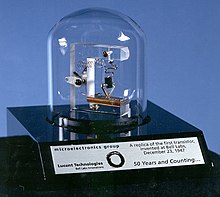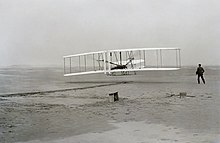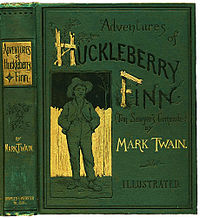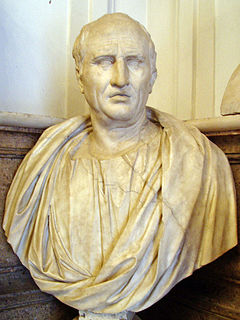 |
| The Soviet Union in 1991 |
Saturday, 31 December 2011
December 31: Dissolution of the Soviet Union (1991)
Friday, 30 December 2011
December 30: Hubble announced that our galaxy is not the only one (1924)
 |
| Edwin Hubble |
Thursday, 29 December 2011
December 29: Feynman's talk openning the nanotechnology era (1959)
 |
| Richard Feynman |
Wednesday, 28 December 2011
December 28: Röntgen published a paper on the discovery of X-ray (1895)
Wilhelm Conrad Röntgen, a German physicist, published a paper about a new type of radiation, which was later known as X-ray. The discovery of X-ray, based on experiments, were made on November 8, 1895 and the result was summarized and published on this date. He did not want to apply for any patent related to his discovery and wanted mankind to benefit from practical applications of the discovery. This achievement earned him the first Nobel Prize in Physics in 1901. As we all know and benefit from the discovery, X-ray improved the quality of our lives, not only in medicine but also in many areas of engineering.
Tuesday, 27 December 2011
December 27: The World Bank and IMF were created (1945)
 |
| World Bank |
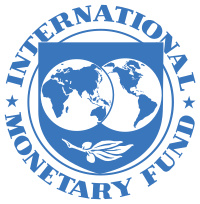 |
| IMF |
Monday, 26 December 2011
December 26: Time Magazine's Machine of the Year (1982)
The personal computer was selected by Time magazine as the Man (in this case Machine) of the Year. This was the first time when the editor chose a non-human recipient of the award. It had been awarded to highly influential personnel such as political leaders and government officials. It was a significant recognition of the influence of the personal computer to the human life. In 1982, about 3 million personal computers were sold and the personal computer market had grown rapidly. At the time, Apple computers and IBM PCs had played a major role in the growth of the personal computer market. Personal computers have changed our lifestyle dramatically and the change is still on-going.
Sunday, 25 December 2011
Saturday, 24 December 2011
December 24: NORAD (formerly CONAD) has tracked Santa since 1955
 |
| The emblem of NORAD Tracks Santa |
Friday, 23 December 2011
December 23: The transistor was first demonstrated at Bell Labs (1947)
At AT&T's Bell Labs, John Bardeen and Walter Brattain performed experiments and observed that a signal was produced with the output power greater than the input when two gold point contacts were applied to a crystal of germanium. William Shockley, Bell Labs' Solid State Physics Group leader, saw the potential of this amplifier and worked further on it with Bardeen and Brattain. Within a year, the three researchers developed the first point-contact transistor. The term transistor was coined by John Pierce, meaning "transfer resistor". This was one of the monumental cornerstones of the semiconductor era.
Thursday, 22 December 2011
December 22: Berlin's Brandenburg Gate re-opened (1989)
The Brandenburg Gate of Berlin was re-opened as one of the milestones to the German reunification, happened in 1990. On November 9, 1989, the Wall between West and East Berlin fell as part of the Revolutions of 1989. On December 22, 1989, Helmut Kohl, the West German chancellor, walked through the gate and was greeted by Hans Modrow, the East German prime minister. The German reunification was eventually finalized on October 3, 1990. During the process, West and East Berlin became reunited and Berlin has become a city-state just like Bremen and Hamburg.
Wednesday, 21 December 2011
December 21: The premiere of Snow White and the Seven Dwarfs (1937)
Walt Disney's movie Snow White and the Seven Dwarfs was the first full-length animated feature in motion picture history and was the first produced in full colour. The movie premiered at the Carthay Circle Theater, Los Angeles, California in 1937. The movie is based on Snow White, a German fairy tale by the Brothers Grimm. The American Film Institute named this movie as the greatest American animated film of all time, in 1998. The movie is historically and culturally significant.
Tuesday, 20 December 2011
December 20: Apple acquired NeXT (1996)
Apple Computer announced the coming acquisition of NeXT Software (formerly NeXT Computer) in a deal with a total estimated value of $427 million and 1.5 million shares of Apple stock. Under the terms of the acquisition, Steve Jobs, the founder of both companies, would rejoin Apple Computer as an advisor to then CEO Gilbert Amelio. As we all know, Jobs became interim CEO soon after his return and then CEO. This acquisition enabled the creation of Mac OS X, the current operating systems of the Mac product line. The concepts and products of NeXT Software became the basis of Mac OS X, including NeXTSTEP, OPENSTEP, and WebObjects. NeXT shipped only about 50,000 units of NeXT computers, however, its impact to the computer industry was not small. Trivia: The first web server set up by Tim Berners-Lee ran on a NeXT computer.
Monday, 19 December 2011
December 19: The Jules Rimet trophy was stolen (1983)
 |
| A replica of the Jules Rimet trophy |
Sunday, 18 December 2011
December 18: Release of Perl programming language (1987)
Larry Wall released the first version of the high-level general purpose interpreted programming language Perl in 1987. Since then, Larry Wall has been overseeing the development and revisions of the programming language. The latest preview version is 5.15.3 and Wall is overseeing the upcoming version 6 of the language. Perl was started as a UNIX scripting language and has become widely popular since 1990s when it was begun to be adopted as a CGI scripting language for web programming. Perl is flexible and its parsing and pattern matching capability facilitates various system and scientific tasks. Thank you Larry for your great work!
Saturday, 17 December 2011
December 17: First human-airflight by the Wright brothers (1903)
The Wright brothers, Wilbur and Orville, built an airplane and made the first controlled and powered human-flight. The importance of their flight was the three-axis control. Their first patent was also about the invention of an aerodynamic control system for a flying machine. In two years from the first flight, the brothers built the first practical fixed-wing airplane.
Friday, 16 December 2011
December 16: The first point-contact transistor was built (1947)
William Bradford Shockley, John Bardeen and Walter Houser Brattain built a point-contact transistor at Bell Laboratories. A point-contact transistor was the first type of solid-state electronic transistor ever built. Germanium was used for semiconductor material in this experiment and it had been used as major material for semiconductors for two decades until it was replaced by silicon and other materials. The point-contact transistor was quickly superseded by the junction transistor. Transistors were the beginning of the revolution made by integrated circuits.
Thursday, 15 December 2011
December 15: Netscape 1.0 was released (1994)
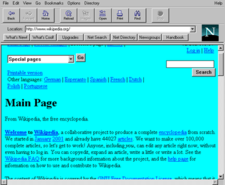 |
| Netscape Navigator 1.22 |
Wednesday, 14 December 2011
December 14: Mariner 2 flew by Venus (1962)
 |
| Mariner 2 |
Tuesday, 13 December 2011
December 13 George Pólya was born (1887)
George Pólya, a Hungarian mathematician, was born in Budapest. Pólya made significant contribution to the foundation of combinatorics, number theory, numerical analysis, and probability theory. His contribution to problem-solving is also huge, for example, his book How to solve it has been very well received by young mathematicians and students. Pólya provides general heuristics of solving problem of various kinds, not only mathematical ones. Highly recognized prizes were created after his name by the Society for Industrial and Applied Mathematics, the Mathematical Association of America and the London Mathematical Society. He taught at ETH Zurich and Stanford and carried on as Stanford Professor Emeritus the rest of his life. He passed away on September 7, 1985.
Monday, 12 December 2011
December 12: Apple Computer's IPO (1980)
Apple launched the initial public offering (IPO) of its stock to the public on the NASDAQ market under the stock symbol "AAPL". The IPO generated more capital than any other IPO since Ford Motor Company in 1956 and created more millionaires than any company in history. Steve Jobs, co-founder and the largest shareholder of the company, held stock valued at $217 million. After the launch of Macintosh, Steve Jobs was ousted and the company was run by CEOs Sculley, Spindler, and Amelio; during the period, the company was gradually losing its creativity, innovation and value. While the company was near bankruptcy, Steve Jobs returned to the company and made a great turnaround with fascinating products and innovative business model. Steve Job remained as the Chairman of the company board until his departure on October 5, 2011 at his age of 56. Apple became an iconic company with countless followers (or consumers).
Sunday, 11 December 2011
December 11: Kyoto Protocol opened for signature (1997)
 |
| Participation in the Kyoto Protocol as of December 2010 |
Saturday, 10 December 2011
December 10: Adventures of Huckleberry Finn was published (1884)
Mark Twain's "Adventures of Huckleberry Finn" was published in Canada and England on December 10, 1884. It was a sequel to "The adventures of Tom Sawyer", which was published in 1876. The sequel does not have the definite article "the" in the title unlike the Tom Sawyer book and a critic explained that this is because Huckleberry Finn's adventure was not complete or never fulfilled in the book. Both books' background was places along the Mississippi River. Mark Twain is the pen name of Samuel Langhorne Clemens. His books are filled with American wit and humour. William Falkner called Mark Twain the father of American literature.
Friday, 9 December 2011
December 9: Christmas Tree worm was discovered (1987)
 |
| A screen capture of the infected computer by Christmas Tree worm |
Thursday, 8 December 2011
December 8: The first trial run of Colossus at Bletchley Park (1943)
 |
| Colossus Mark II |
Wednesday, 7 December 2011
December 7: Marcus Tullius Cicero was assassinated (43 BC)
Marcus Tullius Cicero was a Roman philosopher, statesman, lawyer, and writer. Cicero was one of the greatest orators and writers. His letters and speeches are a primary source of Latin text. More than 800 letters of Cicero survived. In the Senate, Cicero championed a return to the republican government, which is against the idea of Gaius Julius Caesar who played a key role in the transformation of the Roman Republic to the Roman Empire. In 44 BC, Caesar was assassinated by the Liberatores, a group of people supporting the Senate and the Republic. Cicero became a popular leader of the republicans. Later, Octavius, Caesar's adopted son and heir, formed the Second Triumvirate with Marcus Lepidus and Marcus Antonius. Cicero was proscribed as an enemy of the state by the Second Triumvirate and then killed in 43 BC.
Tuesday, 6 December 2011
December 6: The first edition of the Encyclopædia Britannica was published (1768)
 |
| The first edition of the Encyclopædia Britannica |
The Encyclopædia Britannica is the oldest English-language
encyclopaedia still in print. Its first edition was published in 1768. The
encyclopaedia has been issued in 15 editions so far. It had been an excellent
and popular reference before the Internet era. Though there were criticisms
like outdated information, bias opinions, often lack of expertise, the
encyclopaedia enjoyed its status as one of the most authoritative sources of
knowledge and information. Authors or contributors of the encyclopaedia have
include authorities like Albert Einstein, Marie Curie, and Leon Trotsky.
Nowadays, web-based reference services based on mass-sourcing, such as
Wikipedia and Encarta, are dominating the reference market and this trend makes
the survival of off-line only reference media extremely difficult.
Monday, 5 December 2011
December 5: Walt Disney was born (1901)
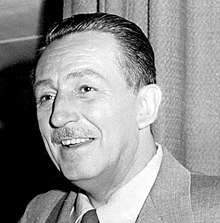 |
| Walt Disney |
Sunday, 4 December 2011
December 4: The Montreal Canadiens ice hockey club was founded (1909)
 |
| Montreal Canadiens |
Saturday, 3 December 2011
December 3: The Ottawa Treaty to ban anti-personnel landmines (1997)
 | |
| Anti-personnel mines (M14, Valmara 69, VS-50) |
Friday, 2 December 2011
December 2: Enron filed for Chapter 11 Bankruptcy (2001)
Enron, a Houston, Texas-based American energy, commodities and services company, filed for Chapter 11 bankruptcy. Before the bankruptcy, Enron was one of the world's leading energy companies dealing with electricity, natural gas, communications, pulp and paper and its revenue was nearly $101 billion in 2000. Enron was very creative and innovative in energy trading in many ways including online trading, however, it should not have used its creativity in accounting. In 2001, it was revealed that its reported financial condition was sustained substantially by systematically manipulated accounting fraud. It then became a symbol of willful corporate fraud and also raised a question of corporate accounting and audit practice. As a result of the Enron scandal, the Arthur Anderson accounting firm was dissolved. The impact of the scandal to the US economy, further to the global economy, was significant. The Sarbanes-Oxley Act (SOX) of 2002 was created to tighten up the financial controls of American corporations and to fix malfunctioning corporate governance and accounting practice. Enron: The Smartest Guys in the Room - an interesting and comprehensive book (2003) and documentary film (2005) about the scandal.
Thursday, 1 December 2011
December 1: Lady Astor became the first female MP (1919)
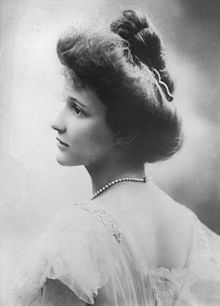 |
| Lady Astor |
Subscribe to:
Comments (Atom)



